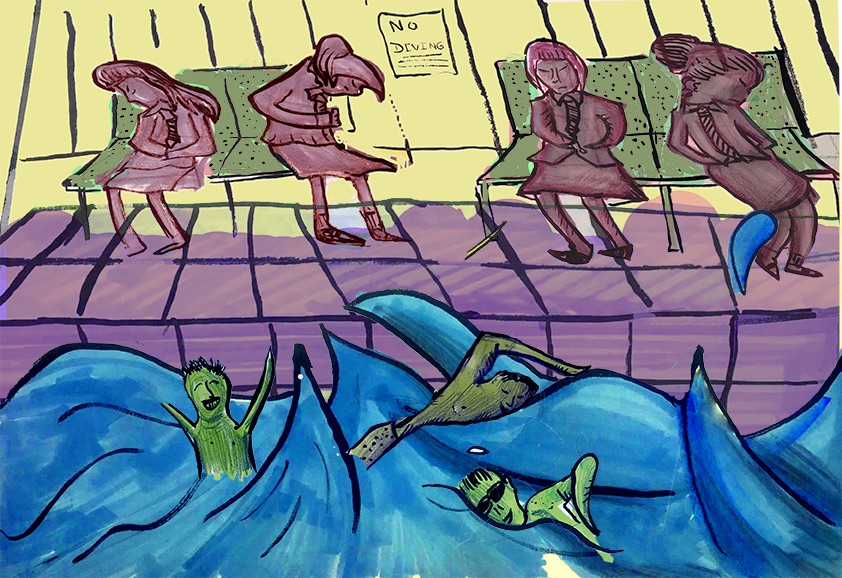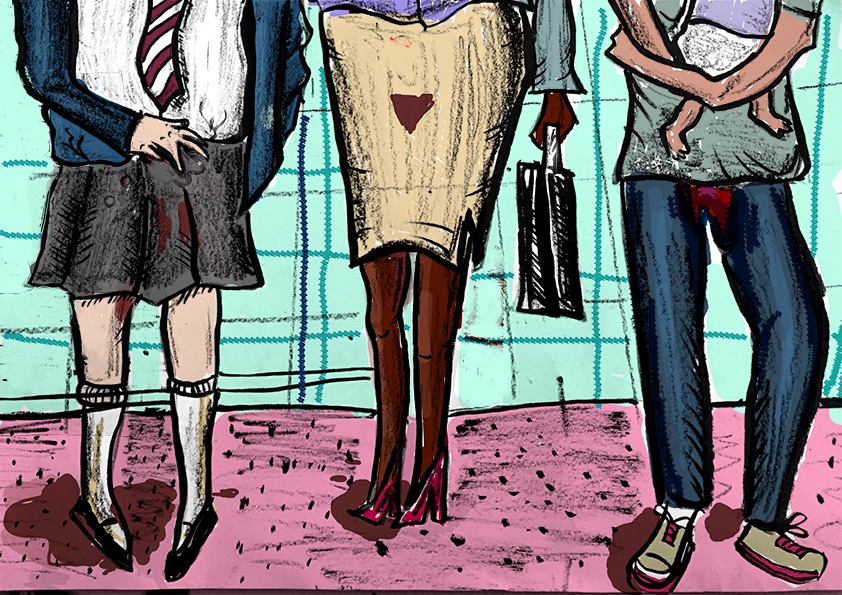I still remember the first time I had to buy a box of tampons myself. Strolling into the college shop, I felt pretty confident I had the situation under control. Then I saw the price.
“What is all this about,” I furiously text my mum, aghast at having to spend the best part of a fiver simply not to bleed on the chairs. I can’t remember exactly what she said in reply, but for her, it was just a fact of life.
As a young girl, I was lucky enough to not connect sanitary products to a real monetary cost in my mind, but not everyone has this privilege. Even after the realisation getting through your monthly period costs serious money, I still didn’t really grasp the consequences.
It wasn’t until earlier this year I received a phone call that set things out clearly for me. At just 17 Amika George has set up a national campaign to provide free sanitary towels and tampons for girls on free school meals. The reason? Girls in Leeds were missing school every month because they simply couldn’t afford to buy them. Some were using socks and sellotape as makeshift pads to get through the day.
An Impossible Choice
It’s not just school girls either. Asylum seekers, refugees, homeless women and generally those on very low incomes all face an impossible choice every month. Do you spend money on food and other essentials, or on products to get through your period?
This is the crux of what’s now been dubbed ‘period poverty’ – not having the funds to buy sanitary products every month. The cost of a £2.99 box of tampons might not seem a lot, but if you’ve only got £35 a week to spend on food, travel and other essentials, they may as well cost a million pounds.
While harrowing scenes in the film I, Daniel Blake have helped bring the issue to light somewhat, far too many people have no idea it’s even happening at all. As a society we still have massive issues talking about periods – let alone the concept of period poverty.
An Issue of Fundamental Human Rights

Image Credit: Skye Baker / RightsInfo
It’s an issue which touches on the very core of our human rights. As human beings we’re all entitled to our dignity. It’s pretty difficult to keep it if you can’t stop the blood flowing inbetween your legs though. And that’s when it starts to affect our other rights too.
We all have a right to education, often said to be one of the most “fundamental” rights in the Human Rights Convention, and the basis of being able to exercise all others. If people aren’t able to turn up to school because they can’t afford pads, they’re being denied their right to education.
A right to health is also a key human rights principles, enshrined in both the 1948 Universal Declaration of Human Rights and in the 1966 International Covenant on Economic, Social and Cultural Rights. Being able to hygienically and safely deal with your periods isn’t a luxury – it’s a basic expectation for every woman.
While this is a reality which mostly affects women in a day to day sense, this is not just a ‘women’s issue’. When women and girls aren’t able to take part in society because of a natural bodily function, the whole of society suffers from their absence. Periods might not be most attractive conversation topic for some, but period poverty is ruining lives. It’s time to not just start talking, but acting too.
Featured Image Credit: Skye Baker / RightsInfo







